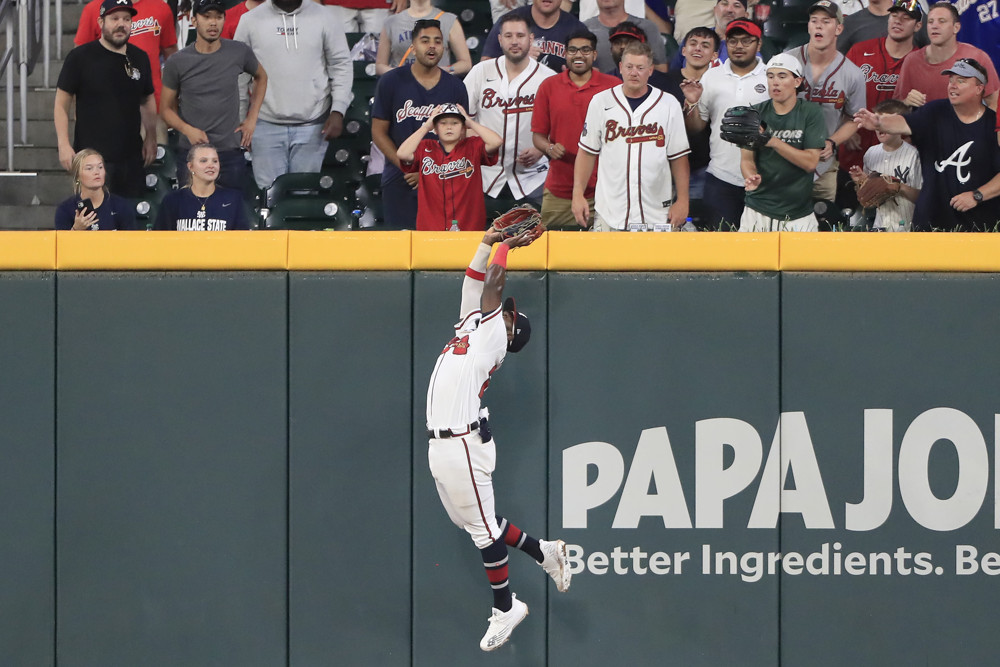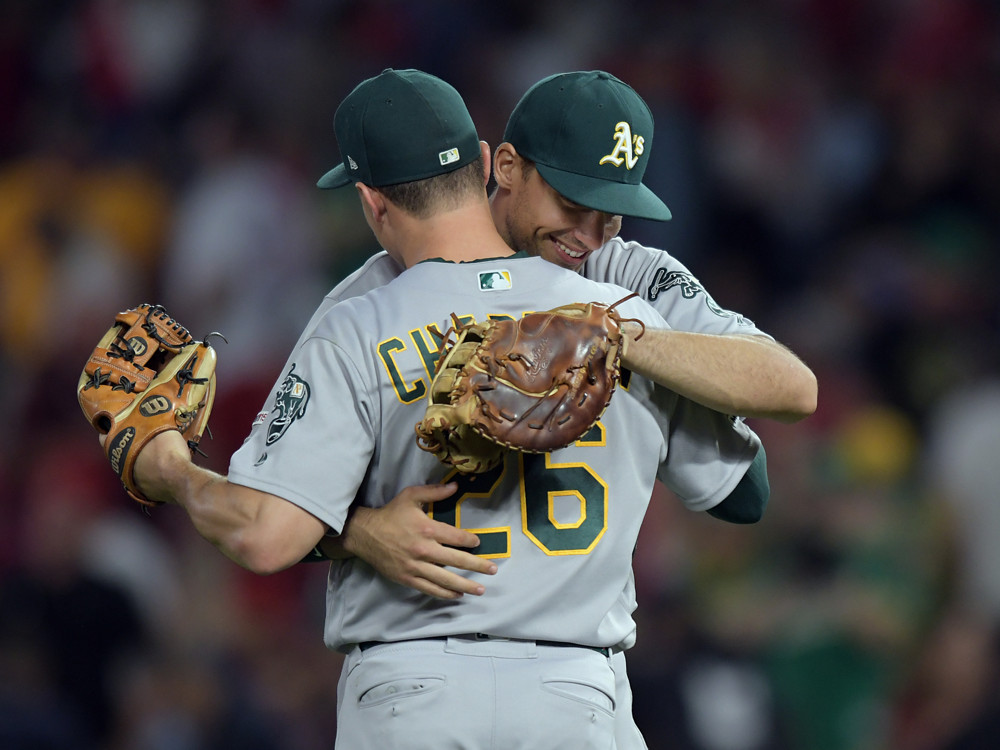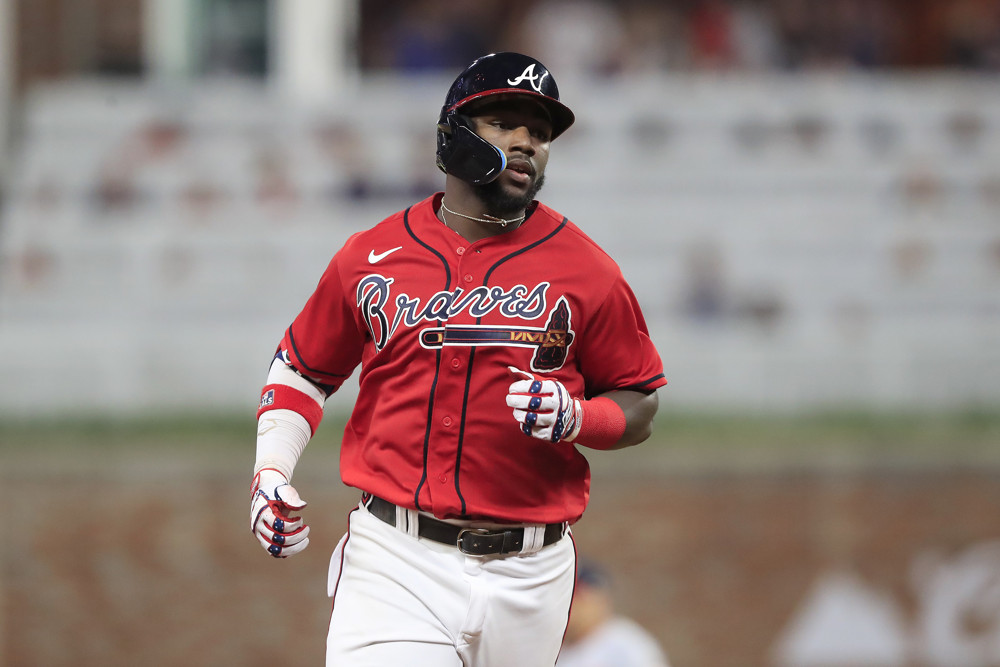Sabin Ceballos won a Rawlings College Gold Glove Award last season at Oregon and was drafted in the third round of the MLB Draft by the Braves. The San Juan, Puerto Rico native has aspirations of being a great infielder, whether it be at third base (his college position) or possibly at shortstop (which he’s played in the past). We talked to him as part of our series of interviews with minor league and college Gold Glove winners about learning defensive excellence. Click here to see other pieces in the series.
The conversation has been edited for clarity and length.
Mark: What does defensive excellence mean to you?
Sabin: Defensive excellence starts days before the game, preparing myself for the team we’re gonna play. We do scouting reviews where I sit with my coach about who the good baserunners and bunters are. Then, I like to apply everything I’ve been practicing before the game. Then when the game comes, just have fun.
Mark: Were did learning defense really start for you?
Sabin: When I was 12 years old, my first infield coach was Luis Avila. He was my head coach from when I was 12 to 14.
With him, I started to see the difference, that there’s a second part of the game and an important part of the game. And I started to take defense a little more seriously.
Mark: What position did you start out at?
Sabin: I was playing center field when I was three (confirmed, he said age 3). The first position I played seriously was shortstop.
Mark: So, what has been the hardest things you’ve had to learn?
Sabin: A few years ago, some people were telling me they thought I had the talent to catch in the big leagues. I had been playing infield all my life. So, I said yeah, let’s try it. That was the hardest part. But when I got to Oregon they said, don’t worry about catching, you’re going to be a nice third baseman.
At third base, it’s about being consistent on defense, minimizing the little things, recognizing when I miss a little thing. Sometimes a little thing is not making an error, it’s having the baseball sense to anticipate things.
Mark: What’s an example of a little thing?
Sabin: Knowing the scouting reports. We have the cards in our hands now. That’s going to help me for the rest of my life. Being able to anticipate, knowing a guy could hit the ball to my side. That makes defense easier.
Little things are also mental things, like not carrying at-bats over to the defensive side. Sometimes you can end an inning with a bases-loaded at-bat and then the next pitch of the next half-inning, the ball is coming to you while you’re thinking about that past at-bat.
Mark: What kind of drills have helped you out the most?
Sabin: So right now, I’ve been doing middle infield drills because I want to have the agility to move like a shortstop. I’m bigger now and I’m supposed to be slower, but I want to still move like a middle infielder.
So, I’ve been doing some legwork. We’ve been doing short hops, and picks, and barehands, fielding ground balls in the middle of the infield so I can go to both sides.
Mark: Do you have a favorite defensive play?
Sabin: This past year at regionals against Vanderbilt. They had bases loaded in the seventh inning. The batter, Alan Espinal (coincidentally also from Puerto Rico), I played baseball for his dad (Rafael). He hit a chopper to me. I made the play. Crazy things happened for me at Oregon after that play (you can read about how he became a campus celebrity here).
𝐘𝐞𝐩, 𝐇𝐞'𝐬 𝐎𝐮𝐭!
Another look at @20_sabin with the unbelievable play. #GoDucks | #D1Top10 | #SCTop10 | #NCAABaseball pic.twitter.com/a5NveFNdSh
— Oregon Duck Baseball (@OregonBaseball) June 4, 2023
Mark: When you’re watching that play develop in the field, what do you see?
Sabin: Before that pitch came, I was anticipating what I was going to do. If it’s hit right at me, I step on the bag. If it’s hit to my left, throw to second. If it’s a chopper, my only chance is barehanded.
[People think] oh, he improvised. No, I worked for it. That’s why I’m talking with my coaches. If I’m not practicing it, I’m not going to be able to make it. Coaches are hitting me choppers before games and I’m barehanding them.
We prepare for that kind of thing coming at the right moment. It was a crazy play.
Mark: Who are the people that have been most helpful to you in coaching you on defense? And what did they teach you?
Sabin: Luis Avila was the first one to show me how you can win games by playing defense. And then Marcus Hinkle at Oregon was one who pushed me to come in early for fielding and to be better every day in the field during drills.
Mark: What are you working on?
Sabin: The organization’s plan is to see if I can play shortstop again. I want to prove to them that I can make that move and be the defender that I was at Oregon at third base.



